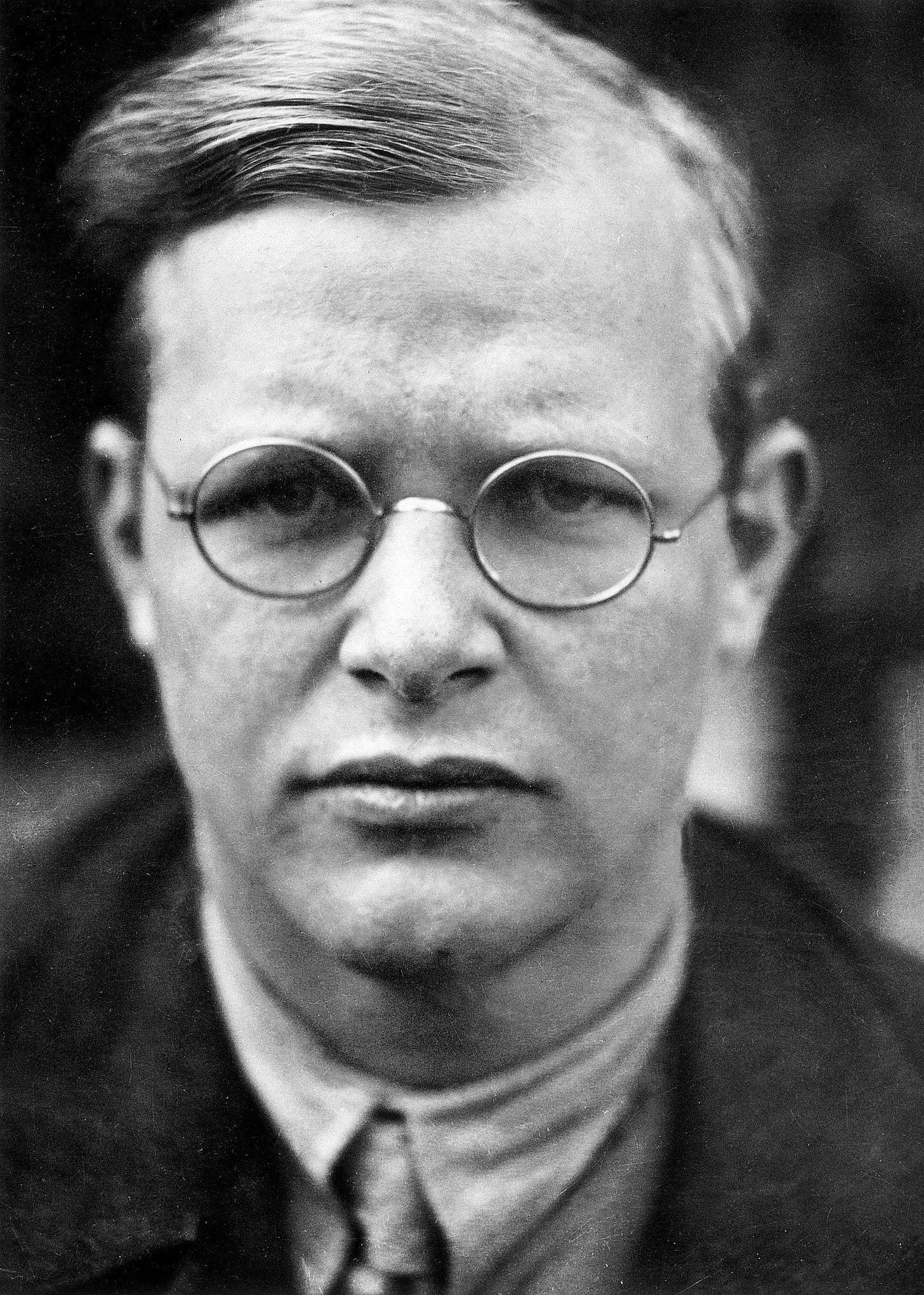Welcome to Poetica, the monthly poetry column of Shadowlands Dispatch! This month, we are pleased to feature Dietrich Bonhoeffer’s poem “By the Powers of Good,” followed by an analysis and reflection by Society for Women of Letters Founder and Leadership Council member Rebekah Valerius. We hope you enjoy!
“By the Powers of Good”
By Dietrich Bonhoeffer (February 4, 1906 — April 9, 1945)
December 19, 1944, Gestapo prison of Prinz-Albrecht-Strasse in Berlin
With every power of good to stay and guide me,
Comforted and inspired beyond all fear,
I’ll live these days with you in thought beside me,
And pass, with you, into the coming year.
The old year still torments our hearts, unhastening;
The long days of sorrow still endure;
Father, grant to the souls thou hast been chastening
That thou hast promised, the healing and the cure.
Should it be ours to drain the cup of grieving
Even to the dregs of pain, at thy command,
We will not falter, thankfully receiving
All that is given by thy loving hand.
But should it be thy will once more to release us
To life’s enjoyment and its good sunshine,
That which we’ve learned from sorrow shall increase us,
And all our life be dedicated to thine.
Today, let candles shed their radiant greetings;
Lo, on our darkness are they not thy light
Leading us, haply, to our longed-for meeting?
Thou canst illumine even our darkest night.
When now the silence deepens for our hearkening,
Grant we may hear thy children’s voices raise
From all the unseen world around us darkening
Their universal paean, in thy praise.
While all the powers of good aid and attend us,
Boldly, we’ll face the future, come what may.
At even and at morn God will befriend us,
And oh, most surely on each newborn day!
“By the Power of Good” Analysis and Reflection
By Rebekah Valerius
Dietrich Bonhoeffer is perhaps one of the best-known martyrs in recent Christian history. A firm opponent of the Nazi regime, he would spend a large portion of his short career resisting the Third Reich and publicly admonishing the German Christians who supported Hitler. For this reason, he remained under continued surveillance and interrogation by the regime. When given the chance to flee Germany, he wrote, “I will have no right to participate in the reconstruction of Christian life in Germany after the war if I do not share the trials of this time with my people.”[1] This sharing would come to involve imprisonment and, ultimately, execution.
His writings from this period are profound and still widely read, particularly The Cost of Discipleship and his letters. Yet, Bonhoeffer did not compose poetry until he was imprisoned. The last of ten poems written during his imprisonment, “By the Power of Good” has since been transcribed into music and can be found in many church hymnals today (one such version is recorded here from a prison cell, not unlike the one in which he wrote the poem).
When reading this poem, a believer might initially be reminded of our Lord’s passionate prayer in the Garden of Gethsemane, just hours before His arrest and crucifixion. Like Jesus, Bonhoeffer is alone in his agony and abandoned by his people. With his prayers for release not granted, he sees that it may be God’s will that the cup of suffering be drunk to its dregs.
Significantly, the poem is bookended with the phrase, “with every power of good” — to “stay and guide” in the first stanza, and to “aid and attend” in the last. It is hard to imagine living under the powers of evil at work in Germany during that time, much less to be physically imprisoned by them. In the second stanza, Bonhoeffer mentions torment, sorrow, and chastening. Further on, he writes of grieving, pain, and darkness. As more of the Nazi’s atrocities were uncovered, these words hardly seem adequate to describe every evil power at work in the world during that time. One must ask if there were any powers of good left, much less every.
Nevertheless, Bonhoeffer writes that “every power of good” attended him in his own affliction, recalling the angels that comforted our Lord. The poem communicates that these powers were stronger, for they strengthened him to move beyond all fear. Indeed, they gave him hope beyond human comprehension: “Boldly, we’ll face the future, come what may. / At even and at morn God will befriend us[.]”
In the early hours of morning, four months after this poem was penned, Bonhoeffer would be stripped naked and hanged — without trial and with no evidence against him. Yet, all around him, the powers of evil were collapsing. Two weeks later, the camp at which he was imprisoned would be freed by Allied soldiers.
The next to last stanza speaks of a deepening silence, suggesting the utter loneliness of seemingly unanswered prayer. One cannot help but think of our Lord’s cry of dereliction from the Cross. Yet even here, even in this moment when God Himself seems furthest away, Bonhoeffer asks God to grant the ability to hear His children’s voices praising Him through the silence. How strangely prophetic that Bonhoeffer asks this, as his own voice from within the dimmest isolation of a prison cell still speaks to us today!
Through the “powers of good” that attended him in his last days, Bonhoeffer’s poem joins those of other blessed martyrs whose “voices raise / From all the unseen world around us darkening/ Their universal paean, in thy praise.” As fellow children of God, in Bonhoeffer’s testimony, we can find comfort to aid and attend us through our own dark days. It is indeed beautiful that his poem becomes a part of the immeasurable “powers of good” that will stay and guide us.
—Rebekah Valerius earned a B.S. in Biochemistry from the University of Texas at Arlington and an MA in Apologetics from Houston Christian University. Her academic interests include the works of G.K. Chesterton, philosophical and literary apologetics, and the philosophy of science. She has written for Christian Research Journal, An Unexpected Journal, and The Worldview Bulletin. She teaches biology and chemistry at a classical Christian school in the Dallas area.
[1] Eberhard Bethge, Dietrich Bonhoeffer: A Biography, revised edition, translated and edited by Victoria J. Barnett (Minneapolis: Fortress Press, 2000), 655.





